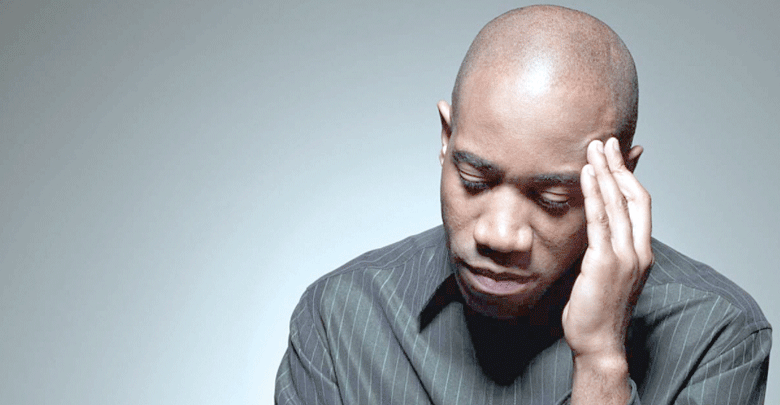Victimhood: Why you think the world is out to get you

Nailantei Norari @artnorari
While there are people who are often victims of circumstances, there are others who revel in victimhood and take immense pleasure in citing that the world is out to get them.
These people are externally focused, thus everything that happens to them is simply, not their fault.
The world wants them to fail and they always get the short end of the stick no matter what they do.
This was the topic of discussion sometime last week at our friends’ usual round table.
One of my close male friends confessed that no matter what his girlfriend does, she always thinks that the world is out to get her.
She will show up late for interviews and somehow find a way to blame the panelists for not picking her.
The common consensus around the table was that either the girl had an issue with her self-esteem, hence truly believed that she will fail anyway or that she was in love with throwing herself pity parties on the regular.
But we could not carry on the discussion as there were varying opinions on what exactly victimhood is, and what exactly causes it.
All odds against you?
“I would be remiss if I did not start by acknowledging that there are people who are going through various things and are honestly victims of certain circumstances.
I would urge these people to take heart and seek help and guidance to help them navigate whatever they are going through unscathed.
When we talk about victim mentality, we are not talking about these people. We are talking about people who tend to blame others for their present circumstances without concrete evidence.
They have an external locus of control where everything that happens to them is not their fault, but a consequence of the universe or someone else having a bone to pick with them.
These people think they have no control over their lives or what happens to them,” life-coach Vuyanzi Rod explains.
She explains that knowing that you have a victim mentality is hard as it requires intense self-examination and self-awareness.
This is why it is important to have people who are willing to be truthful with you whether they are friends or life coach.
Ken Munyua, a psychologist concurs with this. He believes that having a victim mentality can rob someone of their power to act more decisively in their lives.
Such a person attract people who blame others and can influence other people to have a pity party.
“When someone looks at themselves as victims of other people’s actions, they lose themselves and their power of agency.
They instead focus on their perceived powerlessness and instead engage in a blame game with other people.
They always want to look at the mistakes of others and never take responsibility.
They get late and blame the matatu driver. They miss lunch and blame the chef. They fail exams and blame the lecturers.
These people normally suffer from low self-esteem and feel as if the society is against them. They feel as if all odds are stacked against them.
At times, this feeling becomes self-fulfilling as the person will not want to do anything as they believe it will turn out badly either way.
By virtue of not doing anything, failure is ensured,” Munyua explains.
Munyua insists on the importance of taking control over your own life and steering it in the direction you want it to go.
When you come across hurdles and you will, it is important to objectively look at how to surmount them and power onwards rather than be crippled with doubt and the feeling that the odds are against you.
You have the power to write your destiny and no one is out to get you, he insists.
While it is important to move forward and start reclaiming the power you have and wield over your life, Munyua believes that noticing that you have a victim mentality is important as it can show you that you value external valuation more than your internal valuation of yourself.
“Noticing that you have victim mentality can be an opportunity to learn more about yourself and re-evaluate your values.
It can be an opportunity to relearn what is important in your life, put a plan in place then seize control and go after that which you want,” Munyua advises.
But since anything that took time learning will take time to be unlearned, Munyua emphasises on the importance of patience as one unlearns victimhood and walks towards taking more agency in their lives.
Coach Vuyanzi agrees with this and details her recommended plan which she calls A to the power of three.
Way forward
“Firstly, acknowledge that you are a powerful being and therefore, have the power to control the direction your life takes. Acknowledge that your life is happening by design or by default.
This means that you are either actively steering your life, hence shaping it by design, or just letting things happen as they wish in which case you are still shaping your life, but by default.
Acknowledge that you are wrongfully blaming others for something they are not responsible for.
Secondly, accept responsibility and power over your life and start acting like the powerful being you are.
Thirdly, apply yourself, unlearn negative thinking, unlearn that feeling of powerlessness and actively push your life towards all those goals you envision for yourself, and apply accountability,” coach Vuyanzi explains.
If you are fine and the person with a victim mentality is your friend or relative, coach Vuyanzi advises that one should either refer them to a professional to walk with them and help them unlearn the victim mentality while ensuring that they speak truthfully and lovingly to them.
“Victim mentality blames others for their present circumstances. Speak lovingly to the facts and ensure that they understand what they are doing and what it portends.
Cultivate truth, hold up a mirror to their narrative and help them see themselves more clearly.
You might have to do this for a while, chip away at their victim mentality till they start seeing things the right way, but it has to be loving and you have to be patient.
Help them reclaim their power and know that ultimately, the person has to make a decision to change themselves,” coach Vuyanzi says in conclusion.








